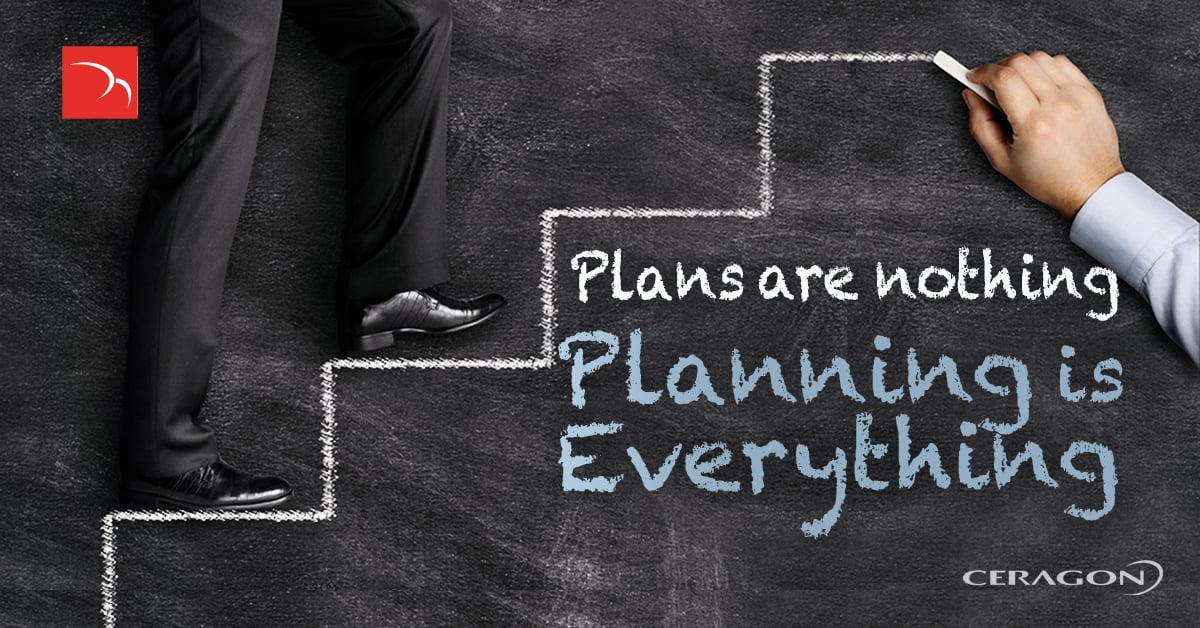Planning is everything, my friend. Let me tell you, life without a plan is like driving in the dark without headlights—you’re bound to crash sooner or later. Whether you’re starting a business, setting career goals, or even planning your weekend getaway, having a well-thought-out plan makes all the difference. It’s not just about writing stuff down; it’s about creating a roadmap that keeps you focused and on track.
You might be thinking, “Do I really need a plan? Can’t I just wing it?” Trust me, I’ve been there too. We’ve all had those moments when we thought, “I’ll figure it out as I go.” But let’s be honest—how often does that actually work? Spoiler alert: not very often. Planning gives you clarity, direction, and most importantly, peace of mind. It’s like having a compass in the middle of a storm.
Now, before we dive deeper into why planning is everything, let’s talk about what happens when you don’t plan. Imagine walking into a big exam without studying, starting a road trip without GPS, or even cooking dinner without a recipe. Sounds chaotic, right? That’s exactly what life feels like without a solid plan. So, buckle up because we’re about to break down why planning is everything and how it can transform your life in ways you never imagined.
Read also:Unleashing The Power Of Dampd Draconic Names Your Ultimate Guide
Why Planning is Everything in Life
Let’s get one thing straight—planning isn’t just for businesspeople or project managers. It’s for everyone. From organizing your daily tasks to achieving long-term dreams, planning is the foundation of success. Think about it: every successful person you admire, from entrepreneurs to athletes, has a plan. They don’t just wake up one day and achieve greatness—it’s a result of consistent effort and strategic planning.
Here’s a fun fact: according to a study by the University of Scranton, people who set clear goals and create plans to achieve them are 10 times more likely to succeed than those who don’t. Crazy, right? This statistic shows that planning isn’t just helpful—it’s essential. It helps you prioritize what matters most, eliminate distractions, and stay motivated even when things get tough.
The Psychology Behind Planning
Why does planning work so well? The answer lies in psychology. When you create a plan, you’re essentially giving your brain a sense of control. It reduces anxiety, boosts confidence, and keeps you focused on the end goal. Plus, breaking down big tasks into smaller, manageable steps makes them feel less overwhelming. It’s like eating an elephant—one bite at a time!
- Planning reduces stress by providing clarity and direction.
- It increases productivity by helping you focus on what truly matters.
- It enhances decision-making by giving you a clear framework to follow.
So, the next time you feel overwhelmed by a big project or goal, remember this: break it down, write it out, and watch how much easier it becomes to tackle.
How Planning Impacts Your Career
When it comes to your career, planning is everything. Without a career plan, you’re basically drifting through life hoping for the best. But guess what? Hope isn’t a strategy. A well-crafted career plan helps you identify your strengths, weaknesses, and opportunities for growth. It also keeps you accountable and motivated to take action.
Setting Career Goals
One of the first steps in career planning is setting goals. Ask yourself: Where do I want to be in five years? What skills do I need to develop? What industries interest me the most? These questions might seem simple, but they’re crucial in shaping your career path. For example, if you’re aiming for a promotion, you’ll need to outline the steps required to get there, such as gaining new certifications or networking with industry leaders.
Read also:Cleft Lip And Palate Celebrities Inspiring Stories Of Triumph And Resilience
According to LinkedIn’s 2023 Workplace Learning Report, professionals who set clear career goals are 35% more likely to receive promotions compared to those who don’t. This shows that planning isn’t just a nice-to-have—it’s a must-have for career success.
Planning in Business: The Key to Success
If you’re an entrepreneur or business owner, you already know how critical planning is. From creating a business plan to setting marketing strategies, every aspect of running a business requires careful thought and organization. Without a solid plan, your business is like a ship without a rudder—destined to drift aimlessly.
The Importance of a Business Plan
A business plan is your blueprint for success. It outlines your vision, mission, target market, financial projections, and growth strategies. Investors love a good business plan because it shows that you’ve done your homework and have a clear understanding of the market. Plus, it helps you anticipate challenges and develop contingency plans to overcome them.
- A study by SCORE found that businesses with a written plan are 30% more likely to succeed than those without one.
- Planning also improves cash flow management, helping you avoid financial pitfalls.
Remember, a business plan isn’t set in stone. It should evolve as your business grows and changes. Regularly reviewing and updating your plan ensures that you stay aligned with your goals and adapt to new opportunities.
Planning for Personal Growth
Planning isn’t just for work or business—it’s also vital for personal development. Whether you’re looking to improve your health, relationships, or financial stability, having a plan keeps you on track. Personal growth planning involves setting specific, measurable, achievable, relevant, and time-bound (SMART) goals. This ensures that your efforts are focused and effective.
Creating a Personal Growth Plan
Start by identifying areas of your life where you’d like to see improvement. Is it your physical health? Emotional well-being? Financial independence? Once you’ve pinpointed these areas, create actionable steps to achieve your goals. For instance, if you want to lose weight, your plan might include exercising three times a week, eating a balanced diet, and tracking your progress regularly.
Research shows that people who actively plan for personal growth are 40% more likely to achieve their desired outcomes. So, whether you’re aiming to run a marathon, learn a new language, or save for a dream vacation, having a plan increases your chances of success exponentially.
Common Mistakes in Planning
While planning is incredibly beneficial, it’s not without its pitfalls. Many people make mistakes that undermine their plans and lead to frustration. Here are some common planning mistakes to avoid:
- Overplanning: Spending too much time planning and not enough time taking action.
- Underplanning: Creating vague or unrealistic plans that lack detail.
- Ignoring external factors: Failing to account for changes in the environment or unforeseen challenges.
Remember, a good plan should be flexible enough to adapt to changing circumstances. It’s like a GPS—when you encounter roadblocks, it recalculates the route to get you back on track.
Tools and Resources for Effective Planning
In today’s digital age, there are countless tools and resources available to help you plan more effectively. From apps to software, these tools can streamline your planning process and keep you organized. Here are a few of my favorites:
Project Management Tools
If you’re working on a team project, tools like Trello, Asana, and Monday.com can help you manage tasks, deadlines, and team collaboration. These platforms allow you to assign tasks, track progress, and communicate seamlessly with your team members.
Time Management Apps
For personal productivity, apps like Todoist, Notion, and Focus@Will can help you stay on top of your to-do list and maintain focus. They also offer features like reminders, notifications, and goal tracking to keep you motivated.
Using the right tools can significantly enhance your planning process and improve your chances of success. Just remember, the best tool is one that works for you—so don’t be afraid to experiment until you find the perfect fit.
Planning for Financial Success
Financial planning is another critical area where planning is everything. Whether you’re saving for retirement, buying a house, or investing in stocks, having a solid financial plan is essential. It helps you manage your money wisely, reduce debt, and build wealth over time.
Creating a Budget
Budgeting is the foundation of financial planning. Start by tracking your income and expenses to understand where your money is going. Then, create a budget that aligns with your financial goals. For example, if you’re saving for a down payment on a house, allocate a specific amount each month toward that goal.
According to a survey by the National Endowment for Financial Education, people who create and stick to a budget are 50% more likely to achieve their financial goals. This highlights the importance of planning in achieving financial stability.
Planning for Health and Well-being
Finally, let’s talk about planning for your health and well-being. In today’s fast-paced world, it’s easy to neglect self-care. But planning can help you prioritize your health and maintain a balanced lifestyle. From meal planning to exercise routines, having a plan keeps you consistent and motivated.
Meal Planning
Meal planning is a great way to eat healthier and save time. By preparing meals in advance, you can avoid last-minute fast food runs and ensure you’re getting the nutrients your body needs. Plus, it saves money in the long run!
Studies show that people who meal plan are 25% more likely to maintain a healthy weight compared to those who don’t. So, whether you’re cooking for one or feeding a family, meal planning is a game-changer.
Conclusion: Embrace the Power of Planning
Planning is everything, and I mean everything. It’s the key to success in every area of life—whether you’re pursuing career goals, running a business, or striving for personal growth. By creating a solid plan, you give yourself the tools and resources needed to achieve your dreams. So, take a moment to reflect on your goals and create a plan that works for you.
Remember, planning isn’t just about writing things down—it’s about taking action. Use the tips and tools we’ve discussed to stay organized, motivated, and focused on your goals. And don’t forget to share this article with your friends and family because planning is a skill that benefits everyone. Together, let’s make planning a priority and watch our lives transform in amazing ways!
Table of Contents
- Why Planning is Everything in Life
- How Planning Impacts Your Career
- Planning in Business: The Key to Success
- Planning for Personal Growth
- Common Mistakes in Planning
- Tools and Resources for Effective Planning
- Planning for Financial Success
- Planning for Health and Well-being
- The Psychology Behind Planning
- Conclusion: Embrace the Power of Planning


